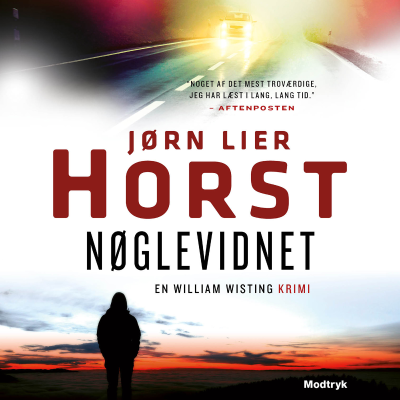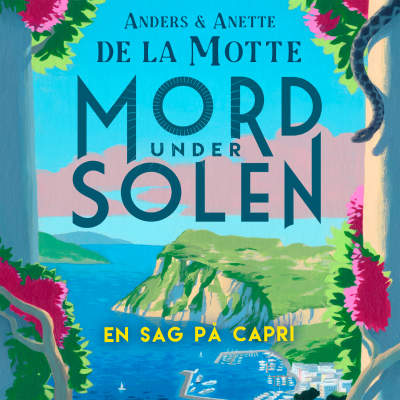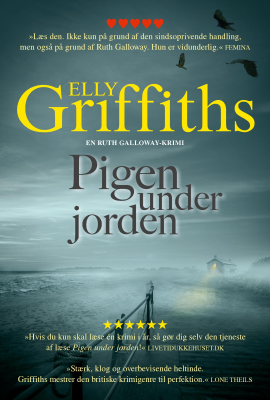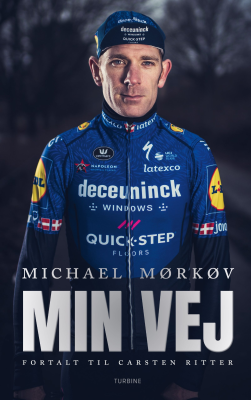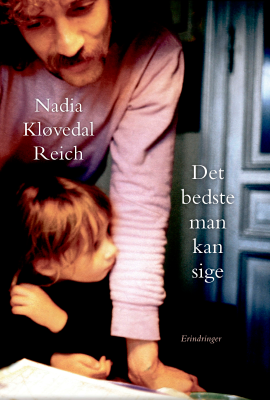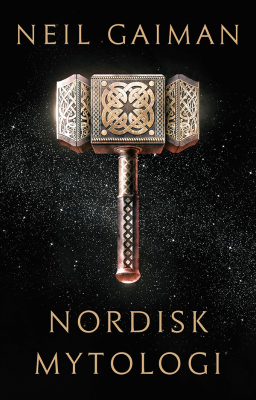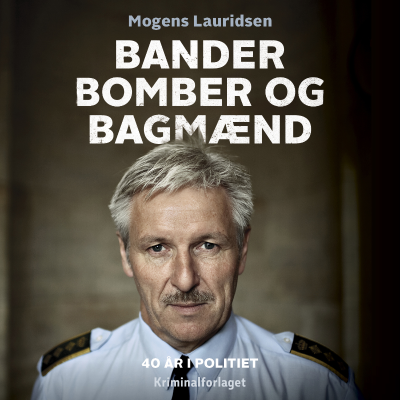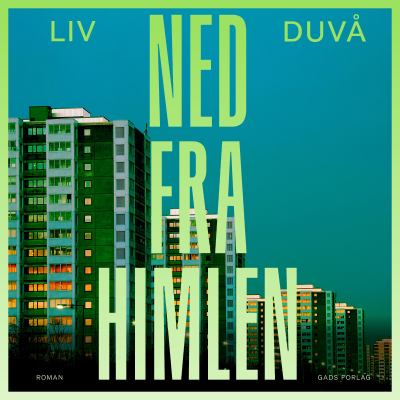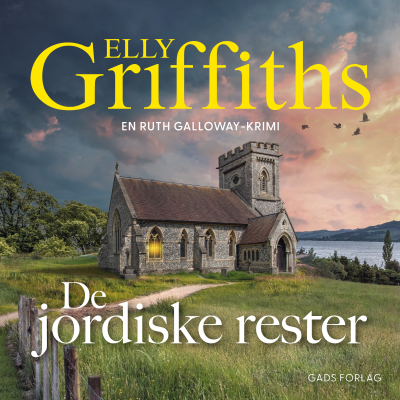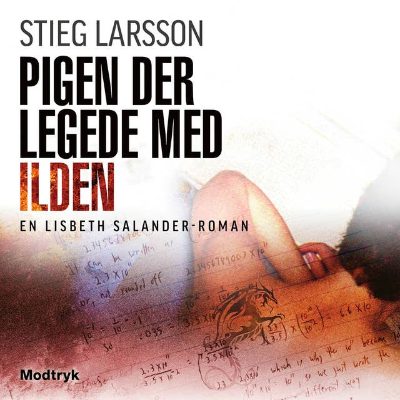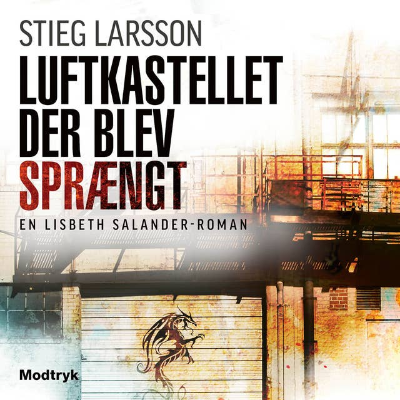
FRED Film Radio - English Channel
Podcast af FRED Film Radio - English Channel
Prøv gratis i 7 dage
99,00 kr. / måned efter prøveperiode.Ingen binding.

Mere end 1 million lyttere
Du vil elske Podimo, og du er ikke alene
Rated 4.7 in the App Store
Læs mere FRED Film Radio - English Channel
Welcome to FRED’s channel in ENGLISH Are you a film lover / a film buff / a filmmaker / an actor / a film critic / a journalist / a film student / a festival organizer / a producer / a distributor / a film buyer / a sales agent/ a film publicist interested in independent cinema and film festivals? YOU ARE IN THE RIGHT PLACE FRED FILM RADIO IS YOUR RADIO ! The idea is to allow all those who cannot be at film festivals to share in the experience as if they were, and to offer more in-depth information and targeted entertainment to those actually there. If English is your language, or a language you understand, THIS IS YOUR CHANNEL !
Alle episoder
5710 episoderMexican director Michel Franco was in Karlovy Vary to present his Berlin-premiered, latest film, “Dreams“, where Jessica Chastain (already starring, in a diametrically opposite role, in his previous movie, “Memory“) plays a rich American woman who enjoys an affair with an enamoured, talented, and undocumented young Mexican ballet dancer (Isaác Hernández) whom she doesn’t seem able to really let into her wealthy benefactress world. It seems difficult not to immediately consider “Dreams” within the context the filmmaker’s body of work, for however very distinctive each new film he makes always is, since his petrifying debut “Daniel & Ana” (2009), each one also adds new layers and complexities to his often merciless and calmly drastic oeuvre, which makes it a rather vertiginous echo chamber. One of the many things “Dreams” brings in is, with Fernando, ‘a strong character [who] loves [Jessica Chastain‘s character], but he’s got dignity, so if the relationship is not on equal terms, he’s not interested in being with her. And of course I’m Mexican so in a way, I wanted to build a character who is full of dignity, and talented and brave, but also a real character who, at some point in the film, makes mistakes.‘ We discuss the irreconcilable distances between Jennifer and Fernando, and especially her inability to escape the vertical, exploitative system of relationships she is used to, and confortable in, which makes her unable to relate to him, as an individual, on an even plainfield. Asked about the house in this film (houses being one of the spaces he likes to explore in his films), Franco also underlines the strict divide between private and public life Chastain‘s character never manages to abolish, and suggests that despite her maintained aloofness, she is ‘lonely and sad’ living this ‘double life’, being unable to break away from a privileged world where, when all is said and done, she does not really have ‘her own voice, and she’s bossed around by the men in her family.‘ Following this argument in ‘defense’ of a character whose radical act of betrayal seems nevertheless unforgivable, echoing other immoral, despicable deeds in Franco filmography, whether collective – like in the Cannes-awarded, gripping “After Lucia” (2012) or, very differently, “New Order” (2020), which floored its first viewers in Venice and bagged the Grand Jury Prize – or individual – “April’s Daughter” vividly comes to mind –, the conversation veers towards the satisfying quality, for the viewer, of revenge as a response to such foul acts in many of Franco‘s films. Answering a question about the fact that a viewer’s mind struggles to even conceive the inhumanity and violence (physical or other) often depicted in them, so inexorable it sometimes eclipses the tenderness and kindness also present in his stories – for instance in “Chronic” (2015) and “Sundown” (2021), both starring Tim Roth –, so much so that it tends to want this violence to be purely fictional and hypothetical, Michel Franco is categorical: what he is interested in portraying is, ‘unfortunately, the reality of the world.’ ‘Some people have absolute freedom […], but most people don’t enjoy these privileges. That’s the world, and I think that’s why people are upset everywhere, because of the social disparity. There are A class citizens [and] people having nothing, not even the minimum rights guaranteed. In the case of Mexico and the States, it’s very dramatic, because we see that on a huge border, and Mexico is treated like a backyard, and immigrants and Mexicans who support the American economy are not acknowledged and not treated in a respectful way in most cases.‘ As it were, the strong impact of the filmmaker films may very well stem for the painful perception, on the part of the viewer, of the cruel contradiction between the evident humanism in them and this implacable lucidity, at least when it comes to a certain part of humankind. ‘The films and books that interest me, always, are those which don’t shy away from the dark side of human behaviour, which we can witness it without much effort: it’s everywhere, unfortunately. […] I am more interested in a cinema that shows a little bit of who we are than in the silly fantasy of what we should be, without any true learning of who we are. […] If we live in such a troubled world, it is because we keep failing as human beings.‘ The post “Dreams”, an interview with director Michel Franco [https://www.fred.fm/dreams-an-interview-with-director-michel-franco/] appeared first on Fred Film Radio [https://www.fred.fm].
A conversation with Brazilian director Davi Pretto about his fourth feature, “Future Future“, a visually arresting and deeply affecting dystopian film, selected in the Proxima Competition section of the 59th Karlovy Vary International Film Festival, where the past is forgotten, and the future eerily similar to the present – as a title card reveals in the beginning of the film, it was shot in Porto Alegre during the cataclysmic floods of 2024. In the film, set in a near future, markedly divided into two distinct acts set in two opposite, adjacent spaces filmed and crafted in completely different ways – between which the mind of the protagonist, K., alternates throughout the movie –, that of the poor and that of the rich, various tragedies have already happened: a virus making it impossible to form mental images and therefore to retain memories, even that of one’s own name, virus which made necessary the use of AI machines to do ‘all the work’ in lieu of the humans, but also a ‘Split’ which has isolated the hungry and poor majority experiencing the critical state of the world every day from the wealthy part of the population dwelling in the supernatural redness of cold, modern flats floating accross the tops of cities contemplating the coming apocalypse, to paraphrase the poet. ON THE INTENTIONS BEHIND THE PROJECT ‘We wanted to navigate through different crises that I believe we are living, these political, urbanistic, technological crises that, in some way, for me, are related. I think it’s impossible to talk about the technological crisis without talking about climate change… What I wanted to do is to put together some sort of a meditation about all these things, make the audience dive into some sort of bubble, put the audience into some sort of bubble and make them experience these things, and not only talk… well, not talk, because I don’t think the film is trying to give answers about these issues: we’re just trying to ruminate about these things.’ ON THE PRESENCE OF AI IN THE FILM ‘AI is something we address in the film, but I decided to use AI images, I wanted to, because I think it was important not only to put the audience in front of these images, but also to give them time to really look at them, proper time – because when you watch these images online, they are quite fast. I really wanted to make something that would give the audience a space [to consider] a horror, a nightmare.’ ON THE STRIKING RESEMBLANCE BETWEEN THE REALITY IN “FUTURE FUTURE” AND THE PRESENT ‘The title is a bit like a joke: it promises a really futuristic film, but at the end of the day, the first image that we see is the most common place in Brazil, a school, and then there is a street, and there is no element that indicates a near-future film. I think that was the goal: to really play with the audience’s expectations.‘ The post “Future Future”, an interview with director Davi Pretto [https://www.fred.fm/future-future-an-interview-with-director-davi-pretto/] appeared first on Fred Film Radio [https://www.fred.fm].
Greek director and musician Alexandros Voulgaris, a.k.a. The Boy, who has just world-premiered his latest work, “They Come Out of Margo“, in the Proxima Competition of the 59th Karlovy Vary Film Festival, tells us more about this undescribable, extremely rich work centered around a fictional, once prolific female composer adored by the people of Athens – born by accident after the mysterious disappearance of a sister she never met whose name she bears in shortened form – who celebrates her 40th birthday with her dearest friends in the rich universe of the flat she hasn’t left in many years. Voulgaris describes his writing process and elaborates on the seemingly dissociative, fragmented structure of the film, teeming with existential and philosophical suggestions, and how it embraces more truthfully the all-at-once complexity of daily life. We also discuss death and generativity, the elevated cinematic references present in the film, its horror-like elements as well as its uncanny lightness, and the situation of female artists in the 70s and 80s, amongst other things. The post “They Come Out of Margo”, an interview with director Alexandros Voulgaris [https://www.fred.fm/they-come-out-of-margo-an-interview-with-director-alexandros-voulgaris/] appeared first on Fred Film Radio [https://www.fred.fm].
“Seti loves music and singing, and she yearns for her voice to be heard. But in Iran, it is against the law for women to perform in public, and so the young girl decides to engage in her own personal protest. The street becomes her stage, and random passers-by become her enthusiastic audience. Her star rises. Seti becomes an idol of her generation, of young people who no longer want to live under ruthless political oppression.” (Anna Kořínek, KVIFF official website) Soheil Beiraghi‘s fourth feature, “Bidad“, was officially the twelfth title to join the Crystal Globe Competition of the 59th Karlovy Vary IFF, as the organisers only unveiled its selection a few days before the festival, to make sure that he and the members of his crew could safely travel out of Iran, especially knowing that Beiraghi was investigated by the authorities during the shoot, also pointing out that ‘Bidad was made as an independent production; otherwise, it would never have been approved by the censors because of its critical tone.’ Beiraghi has been portraying strong female characters since his 2016 debut feature, bearing the ultimate self-assertive title of “I“, starring Leila Hatami (“A Separation“). If this first film also had a successful national release, both “Cold Sweat” (2018), an international festival darling and a three-prize winner at the Fajr Film Festival followingthe captain of the Iranian women’s national football team, and “Popular” (2020), on a female divorcee who wants to start a new life, were banned in Iran, the latter not even getting a public screening. The title of “Bidad“, in which Seti, a young, Gen Z female singer who refuses to accept the fact that women in Iran are not allowed to sing in public defies her country’s religious laws, and starts performing in the street, refers at the same time to oppression, lament, and outcry. In our conversation with Beiraghi – who not only wrote and directed, but also co-edited and produced his film, and supervised the art department –, we discuss the image of Teheran and Iran presented in the film as opposed to the old-fashioned, lifeless notion of it the international public generally sees. Elaborating on Seti’s trajectory of self-assertion, the director also underlines the universal aspect of his character’s search for identity and youthful energy. The beautiful innocence of her budding friendship with the unconventional, contagiously carefree boy-who-doesn’t-tell-his-name is also mentioned. Beiraghi, who intends to continue to make films no matter what restrictions he may face, also points out how Seti’s need to be seen by the world reflects his own. Alef Pictures, the company through which Beiraghi produced his film, also handles international sales. The post “Bidad”, an interview with director Soheil Beiraghi [https://www.fred.fm/bidad-an-interview-with-director-soheil-beiraghi/] appeared first on Fred Film Radio [https://www.fred.fm].
Czech director and scriptwriter Ondřej Provazník is competing for the Crystal Globe of the 59th Karlovy Vary International Film Festival with his fourth feature, “Broken Voices”, inspired by the scandal of the Bambini di Praga choir, a sexual abuse case with which the director had an eery, haunting brush after the trial, reflecting the ambiguity of the reactions of the people involved towards the choirmaster even though he was indeed found guilty, almost is if he was the guru of a cult. We discuss the hints that surface and the silence that nevertheless dominates, the way Ondřej Provazník wanted to reflect the ambivalence and the toxicity of the system through his stylistic choices, the fact that beauty and cruelty often live together under the same roof, the protagonist’s initial candour, her growing awareness and the importance of not making her a victim, and the attitude of Karolina’s sister Lucie. The post “Broken Voices”, an interview with director Ondřej Provazník [https://www.fred.fm/broken-voices-an-interview-with-director-ondrej-provaznik/] appeared first on Fred Film Radio [https://www.fred.fm].

Rated 4.7 in the App Store
Prøv gratis i 7 dage
99,00 kr. / måned efter prøveperiode.Ingen binding.
Eksklusive podcasts
Uden reklamer
Gratis podcasts
Lydbøger
20 timer / måned














